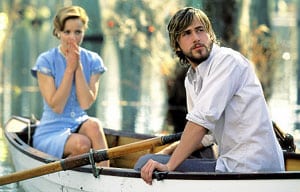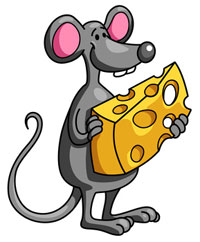A couple weeks ago I posted an article about Nicholas Sparks, author of 17 bestselling books like The Notebook and Message in a Bottle. Every single book by Sparks has been a bestseller. I don’t know of any other author who can say that, so… love him or hate him, I asked why you feel Nicholas Sparks has been so successful.
You had a lot to say.
Now it’s my turn.
If you missed the original article (and everyone’s comments)
click here to check it out: Nicholas Sparks Literary Agent.
* * *
Nicholas Sparks’ Reviews
Many of the opinions I’ve gotten about Nicholas Sparks so far have been passionate (negative and positive). They’re very similar to reviews posted by readers on websites like Amazon. Here’s how they rate The Notebook: 5 star reviews (1,159), 4 star (270), 3 star (102), 2 star (95), and 1 star (202).
Now, before I tell you what I think…
I should say that the only book I’ve read by Nicholas Sparks is The Notebook. I also watched the movie. As a reminder, I first read it as an up and coming literary agent. I wanted to figure out what Nicholas Sparks was doing in his books that was so unique.

If you haven’t read The Notebook or seen the movie (or if it’s been a while), here’s an abridged summary from Publishers Weekly:
In 1932, two North Carolina teenagers from opposite sides of the tracks fall in love. Spending one idyllic summer together in the small town of New Bern, Noah Calhoun and Allie Nelson do not meet again for 14 years. Noah has returned from WWII to restore the house of his dreams, having inherited a large sum of money. Allie, programmed by family and the “caste system of the South” to marry an ambitious, prosperous man, has become engaged to powerful attorney Lon Hammond. When she reads a newspaper story about Noah’s restoration project, she shows up on his porch step, re-entering his life for two days. Will Allie leave Lon for Noah? What renders Sparks’ sentimental story somewhat distinctive are two chapters, which take place in a nursing home in the ’90s, that frame the central story. The first sets the stage for the reading of the eponymous notebook, while the later one takes the characters into the land beyond happily ever after, a future rarely examined in books of this nature. Early on, Noah claims that theirs may be either a tragedy or a love story, depending on the perspective. Ultimately, the judgment is up to readers – be they cynics or romantics. For the latter, this will be a weeper.”
* * *
Negative Reviews
Although I think Nicholas Sparks is brilliant, I’m not comparing him to Faulkner, Kafka, or Shakespeare. In fact, I understand (to some degree) where Sparks’ critics are coming from when they say things like:
- Nicholas Sparks is a Hallmark card writer
- I’ve stepped in rain puddles deeper than Nicholas Sparks’ characters
- Filled with clichés and stereotypes
- He repeats himself throughout the book
- Written with the characterization skills of a drunk monkey
- The writing is laughable, though Mr. Sparks looks good on the jacket photo
- The story seems to be made of sticky sweet syrup – reading the book virtually gave me a toothache
- Want to be a writer, but think you have no talent? Read Nicholas Sparks’ The Notebook. It will inspire you to pick up a pencil and write a new bestseller
Now that we’ve gotten that out of the way, let’s talk about why Nicholas Sparks is a master… in spite of his shortcomings. You have to admit that any author who writes 17 consecutive bestsellers must be doing something right.
Don’t you???

So, what is Nicholas Sparks’ secret sauce?
* * *
What Nicholas Sparks Can Teach You
Here are the three things I feel Nicholas Sparks does incredibly well… specific to The Notebook (although most – if not all – of these comments probably apply to his other books as well):
- Sparks understands how to create a high-concept or bestselling premise and “hook” that grabs your attention. He also makes sure his stories are “suspenseful” from start to finish. In other words, he continuously creates curiosity and raises new questions for the reader… before the old questions are answered. He also constructs powerful endings and his stories are “visual” so they’re easily adapted for feature film.
- Sparks’ stories and writing style are mainstream and accessible. Instead of writing “smaller” and more traditional Harlequin romances, Sparks carefully crafts his books to have crossover appeal (including male readers). His protagonist in The Notebook is likable, a common man with common thoughts and character that anyone can respect and relate to. The language and sentence structure that Sparks uses is simple as well – clear and accessible. Sparks also explores universal themes that are important to most people, like the desire for love; being true to yourself; and struggling with personal values about sex, relationships, and money.
- Sparks makes people feel emotion and his stories are filled with hope. Although The Notebook has a sad ending, it’s main message is one of hope, faith, and possibility. It’s about the human heart’s ability to create “magic” in life… where the impossible becomes possible.
Yes, Nicholas Sparks is something of a Hallmark card writer (a bit cheesy). So, if you want to call him names… that’s okay.

Check out what this frustrated author posted on Amazon:
“What escapes a lot of enthusiasts for The Notebook is that the author is essentially telling the poor drudges over at Iowa Writer’s to forget their MFA’s; if you want to be a successful (as opposed to great or even good) writer, get your MBA-marketing.”
I disagree.
The genius of Nicholas Sparks isn’t his marketing savvy. It’s his obsession with writing a story that lots of people can understand and relate to. That’s called good storytelling. Now, does good storytelling help sell books?
Absolutely.
But I never met an author
that didn’t want more readers.

In fact, you’re probably one of them.
* * *
My Advice
Focus more on the fundamentals…
Simple substance is more important than style. If your story sucks isn’t good, nothing else matters. Be clear before you try to be clever. Focus more on connecting with your readers instead of trying to impress them with $20 words or complex sentences that are so long-winded and convoluted that your reader gets confused (like this one).
Bash me (and St. Nick) if you want. Just remember that Sparks has nearly 80 million copies in print worldwide, in over 45 languages, including over 50 million copies in the United States alone. There must be something we can learn from him.
Don’t you think???
– Mark
Mark Malatesta
Your “Undercover” Agent


* * *
* * *

One can be the best technical writer in the world but if you don’t have a story… forget it!
Hi Thomas, for some reason your comment/question went to my spam folder and I wasn’t notified about it… so my apologies for the delay getting back to you. Now to your comment. You’re absolutely right and thanks for chiming in and stopping by my site.
If you haven’t already done so, make sure you take advantage of all the resources (no cost) on our main website here: http://thebestsellingauthor.com/membership/. I’m also happy to answer any questions that you have online here: http://thebestsellingauthor.com/ask/. And, if you’re serious and believe we’re a good fit, you can register for an introductory coaching call with me here (there is a fee for that): http://thebestsellingauthor.com/coaching/intro-call/.
One way or another, I’m looking forward to learning more about you and your work.
Have a good night!
– Mark
Mark Malatesta
The Bestselling Author
http://thebestsellingauthor.com
Literary Agent Undercover
https://literary-agents.com
Mark- are you a Literary Agent.? If you are, how much do you charge the authors that you represent? For example, do you take a percentage of the profits of my book? Or do you charge a simple flat rate? Thanks for your time, Fran
Hi Fran, I’m a former literary agent now helping author get agents. Everything you need to get your book published is here on my website. I suggest you start by listening to the complimentary mp3 featured here on my home page at https://literary-agents.com. Then set up an intro call with me here if it seems like a good fit: https://literary-agents.com/book-marketing/book-marketing-coach/. Of course you can also post another question. 😉 Mark
I have read almost all of his books and agree that his storytelling skills is what sells his books! Writers like him have inspired me to write my own story entitled: MY HOUSEMATES A SINGLES’ GUIDE TO SHARED LIVING; which is composed of my experiences sharing rental homes or apartments with other singles over a 16 year time span, from college graduation until my marriage in 1993! I have used other books along this same topic as reference books to support my own experiences!
Hi Fran, I’m glad you see the genius behind his success. Regardless of genre or what someone thinks about his stories or writing quality, it’s good to respect and study people who are successful. And I’m glad you’re enjoying your writing journey as well and staying productive. Warm wishes. Mark
Hi Mark,
After writing two books that were never published Nicholas Sparks wrote ‘The Notebook’ submitted it to an agent-Theresa Park who’s agency then put it in their slush pile. She found it by accident and decided to publish after it had already been chewed up and spat out by the due process of submissions and query letters. So it was blind luck that got his first book published not the fact that he did anything special to achieve publication.
I wonder what happened to his first two books?
Hi Brian, I didn’t know that… so thanks for posting it. Here’s what I’ll do. What do you say we split the difference and say that it was probably a little bit of both. A little bit of luck. But he also must have been doing something right for Theresa to feel that way about the manuscript. Right? Mark
Hi Mark,
Perhaps co-writing Wokini by piggy backing on the fame of established celebrity Billy Mills is the answer.
After selling 50000 copies of Wokini maybe Theresa was impressed by his new bios and the fact that his link with Billy Mills would sell the Notebook?
No-one could say that Nicholas Sparks’ is not successful but I think it’s more to do with his strategic business sense than his writing.
Hi Brian, I admire strategic business sense just as much as I admire good writing… so it’s all good as far I’m concerned. But you inspired me to do a bit more research on Sparks. So thank you for that. Nothing more fun to a book nerd like me than learning new things about an author. Thanks for posting and have a great week. Mark
I think you’re right. Simplicity and “commonality” appeal to more people, hence more readers.
Every writer needs to remember that if the readers feel a connection with the character/s they’re more likely to keep reading.
It’s more common with “literary” writers… getting carried away with technique and forgetting the story. Makes me think of a “perfect” ballerina I’ve seen perform. Technically, she’s perfect. But I fall asleep watching her. I don’t feel anything. No soul. Then I see another ballerina in a smaller part who excites me (in a good way). She’s not as perfect, but the music and dancing feels like it is her. They are one. Anyway, sorry for rambling… but I think you get the idea. Have a good night.
Without passion it’s all mechanics. <— True for almost everything in life!
True, but that can be the trick. Not everyone connects the same. I never know what some people are going to see as relateable. I’ve heard people comment on some stories as weak, or characters when to me they’re very strong. Other times people like characters that are very weak and it’s the best thing ever.
The way I see it is that people see EVERYTHING in life through filters from past experiences. Each person’s experiences are different, so they see everything differently. Those who have had to be strong can’t stand weakness, and those who have always had someone to take care of them and depend on don’t understand strength of self. You’ll never please everyone. You need to find the common, like love, fear, and hate. Then you mix it up and put it in a story. Let the chips fall where they may.
Yep, and we don’t know until we try.
Actually, I’ve never read any of his books.
I watched some of the movies based on his books but only on television or on Netflix so I can’t say I’ve done a lot to contribute to his career.
His work is, simply put, entertaining and I have to congratulate him on his success.
Hi Geri, it’s okay. He gets paid for the movies, too. 😉 Thanks for stopping by and saying hello. Mark
When you say Sparks is a hack (although you do give his strong points), considering the number of books he has sold, your comment also says something about his audience too, doesn’t it?
Hi Vitch, not at all. I’m actually more of a fan/supporter. Anyone who’s successful commercially is doing at least a few things right. Not sure if you meant this, but I’ve been talking about it lately with people. I’m not talking about Sparks here. Some not-so-good (depressing or boring) books get published because there are a lot of people in that place. In particular, I think of the phrase “misery memoirs”. Anyway, it does say something about the audience. Thanks for posting. Mark
Sparks has obviously found an audience that relates to him. He can communicate with it. A lot of people do not understand let alone appreciate what is called “great literature,” in as much as a small percentage of people gravitate to classical music these days. Such music in general was not written or performed for the basic public anyway except perhaps for J.S. Bach, who created music for his church. Steinbeck is not profound either, but he is a great story teller who paints a wonderful picture of people in various circumstances, as evidenced in Grapes of Wrath. Not everyone is able to read Shakespeare and not all of his plays are reader friendly. As for Faulkner, much of his writing is a desultory read, such as “Absalom, Absalom,” a very difficult and confusing story written from several perspectives. Faulkner has been given the distinction by the academe as the “greatest American author,” though others would attach that label to Samuel Clemons, giving “Huckleberry Finn” as an example. James Joyce is also called a “great writer” in English, but his big book “Ulysses” is a very difficult read, let alone his inscrutable “Finnegan’s Wake.” That’s why Hemingway’s oeuvre of stories and novels, including “The Old Man and the Sea,” still has within it a lesson for would be writers: “keep it simple, stupid.” That is something editors in journalism say to their writers who think they are smarter than their audience, whether they are involved in print, internet, television or radio. The range of people is such that a writer who presents himself well can find an audience or an audience will find him, as Sparks has experienced. Other readers have piles of pulp romance novels in their homes. The key to the whole business of writing is to communicate. The best communicators will prevail.
Hi Joel, your comments make me think about conversations that I sometimes have with my wife. I’m enthusiastically telling her about something and I catch her tuning me out. Then I try to call her on it and she tells me that I’m simply taking to long to get to the good stuff. That’s one of the biggest problems that I find with most almost-good authors. A good/great story that gets bogged down in things that don’t “add value.” I know you know what I’m talking about. 😉 Mark
I like Sparks. Hallmark obviously sells. I like the fact that he does touch reader’s emotions. People, women in particular, want to read stories that they can feel, that keeps them turning the pages, anticipating the end. That’s what Sparks does. I look forward to having even a portion of his success. No author is going to be perfect and their work will not appeal to everyone. But, if what that author is doing proves to be successful, I say keep doing it.
Kudos to Nicholas Sparks!:)
Hi Sabrena, I agree… emotions… and suspense. A good combination. And you’re right about him being smart to keep doing what works. How many authors do you and I both know that would do anything just to make one book work. Let alone 17. My wish is for you to have some of the same success. Keep me posted on your progress. And thanks, as always, for posting! Mark
Thank you Mark. I certainly will. 🙂
You have a gift for sifting through controversy, which I see in your evaluation of my non-fiction work. I enjoyed the movie of The Notebook, and agree that it is a Hallmark type of picture — but the Hallmark stuff is more uplifting than a lot of (maybe even most of) what Hollywood puts out. There is a place and a mood for it, and you captured it well.
Hi Harold! Sifting through controversy, or creating it? Perhaps both. I’m going to submit myself to Fifty Shades of Grey next. The things I have to do in my profession. I’ve got to be in the know and express my opinion. Everyone else is. I wonder if I’ll enjoy it. If I do, will I admit it. So many questions. At least it’s tax-deductible. I love my “job.” By the way, I”m a fan of the heart in Hallmark movies… just don’t like them being so predictable. Thanks for posting! Mark
I’m a Spark’s fan so far. I’ve only read one of his books, Nights in Rodanthe, and found it sadly fascinating. I like his characters. I’ve seen the movie versions of Message in a Bottle, The Notebook, and Dear John. I also read the query that landed him an agent for The Notebook; nothing like the short query that agents insist on having, and as such is confusing to new writers. I like his characters, but the sad endings seem to be what sells. Spells doom for me.
Hi Sydney… haven’t read that one yet or seen the film (not even sure if it’s out yet). Where did you see the query that landed him an agent? I guess I could Google it but what fun would that be? If I don’t hear back from you in a day or two, I’ll start searching. By the way, I’m not a fan of short query letters, if that helps. I agree that his sad endings are part of his appeal (that just sounds so wrong). But sadness certainly isn’t all that sells. You’ll be okay. Thanks for posting. Mark 😉
Hi, Mark. I can’t remember where I saw that query from Sparks about the notebook, but it detailed that one of his grandparents (?) had Alzheimer’s, and not enough attention had been paid to the disease, thus his book. Saw the movie version of Nights in Rodanthe, starring Richard Gere and Diane Lange. I’ve had rejections based on not adhering to the equery word count or naming too many characters in the prologue. “Not for me” is the one I liked best. Lol
Hey Mark,
Good reminders in terms of the basic ingredients. And if the writing isn’t all that great, well it does encourage people like us — me, rather. This morning I read the first 2 chapters of a memoir that is extremely well regarded in my circle. I know there’s some great stuff in it, but was a little disappointed in what I read. It made me breathe a big sigh of relief and break down the sense of an invisible wall between me and those “published authors”.
Hi Ellen, funny. You can say “us.” It’s a great way of softening the blow. I do it all the time when I’m trying to get my wife to do something she doesn’t want to do. Ha ha ha. Glad you enjoyed the post. And I’m thrilled that you’re finding published works that are giving you more confidence in your own. That is a wonderful thing. Thanks for posting and have a great week! Mark
I think these types of stories definitely have their place. Folks want great movies to cook by, girlfriends wants great movies to share “girls night out” and we all want from time to time a great beach read. Connecting people through their hearts and souls will never go out of style. It is a tried and true genre. But as Dale said, no writer is perfect. NO writer. While learning the craft, we can easily find fault with other authors, but the point is we are learning from what they do.
Hi Killion, when I read the first sentence of your comment… I wasn’t sure how to take it. Funny, it could have been a dig. But then I saw where you were going and I agree. Sometimes I like deep. Other times I like intense. Other times I like stupid-funny. For all genres and subgenres, there is a time… and an audience. 😉 Thanks for being positive and looking for the good. I’m sick of the critics. For every negative, five positive. The world would be a better place. Thanks for posting. Mark
Agreed. I don’t particularly care for critics. I say – “you try to do better” Until then, shut it 🙂
I love some many genres and there is a time, place, and need for each one. Right now everyone needs a feel good movie about love and relationships. Can’t be too many in my opinion!
Reading a book is a very personal journey. Not everyone wants to climb Everest, or read Shakespear. In my opinion, the writer should learn to tell a story.. one that the writer believes in. And, not everyone who picks up the book will be enamoured. But if the story is well told and finds its audience, that counts as a success. By the number of his readers, Mr. Sparks is a successful author. I wish new authors similar results.
Hi Patricia, amen to that. A story well told will find an audience. There’s just no way around it. It might take a little (or lot) of patience and persistence, but eventually it happens. Thanks for stopping by my blog and sharing your optimism. Always good to see you. Mark
No writer is perfect, even my favorite author Stephen King has his problems. And don’t get me started on Stephanie Meyer, but she can actually write, which I didn’t know from reading a little of Twilight. Not saying that to be mean the criticism about Sparks characterization made me think of her books.
But my thing is, I love “love stories”, though I usually don’t care for most of the ones published. The Notebook is one of the few that I did love. But then again it was hardly perfect. The couple of the story loved each other so passionately, and yet they fell a part. They were destroyed. The bond that we see by the end of the movie, which is my favorite part, is one that was grown under the very best, and the very worst of their love life. Not to mention I can identify with the story.
Love is different for everyone, which is why people don’t always agree on love stories. (The hospice alone is beyond that of a mud puddle, how many people would go that far for someone they love? And if the answer is not very many, than that’s why it works because most people love reading about things they don’t have, or can’t do. If the answer is almost anyone, then most can relate because they would do it too.)
I agree with your points on why he’s a success, but I was surprised that I enjoyed a popular love story to be honest. Usually what sells doesn’t peak my interest. Which will add to my challenge when I write my manuscripts for mainstream. Just my two cents on it, which really is subjective. They key in my opinion is writing a story that can appeal to a wide variety of subjective minds. Hence why can be hard for writers that are considered good. Or who I would consider good.
I thought it was a clever strategy, Sparks putting them in hospice. If the Noah was 20 years younger and living at home, what would he have done? Easier to stand by someone’s side like that when you’re already old enough to be in a home yourself. I’m just saying. I would do the same, but I don’t think I’d carry it off with nearly as much grace. Mark
I’m there with you on not always liking what’s popular. I’m always striving to help authors find the happy medium. Write something that’s absolutely unique and inspired. But try to make it as “big” and accessible as possible also. The two aren’t mutually exclusive. Mark
So many people are quick to criticize Sparks. He’s not perfect, who is? But he makes people feel things about their own lives and loves… your post is proof. That’s got to be in the top ten list of what makes good fiction, don’t you think. Hmm. That gets me thinking. I need to post a blog asking everyone to list the elements that they believe make a great book. It’s going to be a long list. Thanks for posting. Mark
Have you finished a book by Stephanie Meyer? I read a novella by her and was very disappointed. She built suspense and the writing wasn’t too bad, there was just NO ending. That made the entire read a waste of time to me. *shrug* It was enough to make me not even interested in reading any of her novels.
Hey Becca, Happy Monday… I was cranking on some projects this weekend so I was away from my blog for a bit. I know, I know. But I’m back now and glad to see you. Haven’t read Meyer yet but plan on doing so soon. No good ending is kind of a buzzkill, isn’t it? I’m of the camp that believes you’re better off not writing the beginning until you have the ending in mind. The middle can sort itself out, to some extent, as you go. How do you know how to start, if you don’ t know where you’re going!?
I wish I’d been busy getting things done this weekend. LOL I’m VERY glad the stomach bug I caught was a 24 hour one.
I can’t remember the name of the book, but it was a TOTAL buzzkill! She got rid of the coolest character and killed off the POV character before anything really happened. I was so mad! There was all that set up and reading about every to just be dumped!
Okay, I’m going to make sure it’s a novel I read and NOT a novella. That doesn’t mean I’m safe, but at least I can avoid the title you’re referring to that, at the moment, has no name. 😉 Mark
I usually come up with a few paragraphs of the opening right off the bat, but then again I love openings. Sorta a fetish :^D
Hey Dale, I haven’t read a ton of King but he sure knows how to start ’em… not so good in the middle from the few I’ve read. Some meandering. What’s your take on the master? Meyer is on my short list to read. I think I’m going with Fifty Shades of Grey, however, for my next “hot” author controversy. Everyone’s been bashing it to bits. Read the first couple pages on my iphone while waiting for dinner at a restaurant tonight… and it’s not bad. More later. Mark
I love King, though some of his stories don’t do it for me. 50 Shades, from what I hear is horrible, but haven’t read it. It’s good to dissect what works, though it’s not a guarantee for success. I’ll worry about it when I get there, and I’ll do what I have to for the MS to be sellable, though I’m not sure how much I’d have to change it. Hopefully I can manage a good compromise.
I will add though, the part I hated about The Notebook is the same thing I hate about every love story, though it does happen in real life which makes me hate it even more, is the cliche love triangle. I understand that the guy Allie ended up with came along when Noah was long gone out her life, but still. And that seems to be a huge seller in romance stories.
Hey Dale! Just a quick shout out to let you know that I haven’t forgotten about what we talked about this week on the phone. I’ve just been slammed since then with work. But I’m thinking about you every day and I’ll send you the stuff we talked about sometime this weekend. More soon, and have a great weekend! Mark
Awesome, mister Mark! No worries, you’re a man in demand. :^)
That’s a pretty good analysis, Mark. I assume the harshest critics are mostly men. Romance, after all, has its devotees and detractors, typically divided between women and men. Generally, young men especially are afraid of being ridiculed by their peers as being weak and sentimental. Too bad, because romance is the substance of life and happiness, which mature men can appreciate.
Hi David, hmm… good observation. The gender issue is often a fascinating one. I used the fact that I had a male author in a predominantly female author genre a while back… to help differentiate him. Could work for you or against you. In his case, the gamble paid off. He just got two offers from major houses. I’m going to start looking now to see who does most of “the nasty” in book reviews and on social media. Maybe men are meaner. I wonder. Mark | A Mature Romantic 😉
Long ago, I wrote a 2nd novel about a male architect who uncovers a dark secret on a former army base in Illinois. He begins a 2200-mile escape to Carmel, CA, inadvertently snagging a gorgeous former debutant. In miles of travel (& years of rewrites), the woman grew more exciting, and the romantic interplay became more intriguing than the danger game. Women have said they “didn’t want the story to end.” Men said they like it, too, but I wonder if, like Sparks, I should be marketing to women.
I enjoyed the article. I think I’m going to need to find a copy of Mr. Spark’s ‘The Notebook’ to see why you made the comments you made. I have one book out and am writing a sequel to it so am always looking for ways to broaden my reader base. I know, now, that I made some errors in publishing my first book most notably I didn’t have it properly edited – that is being remedied in the new book. I will re-release the original after it’s been properly edited. Thank you for sharing your insights.
Hi Linda, thank you for the kind words about the article. Talking about The Notebook really got me fired up and motivated to do more articles like this. It’s fun hearing what everyone thinks about what’s good and what isn’t… and why. I just downloaded Fifty Shades of Grey. Definitely another book that falls under the “must see what all the fuss is about” category. Thanks for posting and let me know what you think of The Notebook! Mark